Constant: Political Writings
CAD$55.95 (X)
Part of Cambridge Texts in the History of Political Thought
- Real Author: Benjamin Constant
- Editor and Translator: Biancamaria Fontana
- Date Published: November 1988
- availability: Available
- format: Paperback
- isbn: 9780521316323
-
The first English translation of the major political works of Benjamin Constant (1767-1830), one of the most important of the French political figures in the aftermath of the revolution of 1789, and a leading member of the liberal opposition to Napoleon and later to the restored Bourbon monarchy. The texts included in this volume are widely regarded as one of the classic formulations of modern liberal doctrine.
Customer reviews
Not yet reviewed
Be the first to review
Review was not posted due to profanity
×Product details
- Date Published: November 1988
- format: Paperback
- isbn: 9780521316323
- length: 366 pages
- dimensions: 215 x 139 x 22 mm
- weight: 0.49kg
- availability: Available
Table of Contents
Acknowledgements
Introduction
Bibliographical note
Preface to the first edition
Preface to the third edition
Foreword to the fourth edition
Part I. The Spirit of Conquest:
1. The virtues compatible with war at given stages of social development
2. The character of modern nations in relation to war
3. The spirit of conquest in the present condition of Europe
4. Of a military race acting on self-interest alone
5. A further reason for the deterioration of the military class within the system of conquest
6. The influence of this military spirit upon the internal condition of nations
7. A further drawback of the formation of this military spirit
8. The effect of a conquering government upon the mass of the nation
9. Means of coercion necessary to supplement upon the mass of the nation
10. Further drawbacks of the system of warfare for enlightenment and the educated class
11. The point of view from which a conquering nation today would regard its own successes
12. Effect of these successes upon the conquered peoples
13. On uniformity
14. The inevitable end to the successes of a conquering nation
15. Results of the system of warfare in the present age
Part II. Usurpation:
1. The specific aim of the comparison between usurpation and monarchy
2. Differences between usurpation and monarchy
3. One respect in which usurpation is more hateful than absolute despotism
4. Usurpation cannot survive in this period of our civilisation
5. Can usurpation not be maintained by force?
6. The kind of liberty offered to men at the end of the last century
7. The modern imitators of the republics of antiquity
8. The means employed to give to the moderns the liberty of the ancients
9. Does the aversion of the moderns for this pretended liberty imply that they love despotism?
10. A sophism in favour of arbitrary power excercised by one man
11. The effects of arbitrary power upon intellectual progress
12. Religion under arbitrary power
13. Men's inability to resign themselves voluntarily to arbitrary power in any form
14. Despotism as a means of preserving usurpation
15. The effect of illegal and despotism measures on regular governments themselves
16. Implications of the preceding considerations in relation to despotism
17. Causes which make despotism particularly impossible at this age of our civilisation
18. As usurpation cannot be maintained through despotism, since in our days despotism itself cannot last, usurpation has no chance of enduring
Additions to The spirit of conquest and usurpation
Bibliographical note
Bibliography
Index.
Sorry, this resource is locked
Please register or sign in to request access. If you are having problems accessing these resources please email [email protected]
Register Sign in» Proceed
You are now leaving the Cambridge University Press website. Your eBook purchase and download will be completed by our partner www.ebooks.com. Please see the permission section of the www.ebooks.com catalogue page for details of the print & copy limits on our eBooks.
Continue ×Are you sure you want to delete your account?
This cannot be undone.
Thank you for your feedback which will help us improve our service.
If you requested a response, we will make sure to get back to you shortly.
×

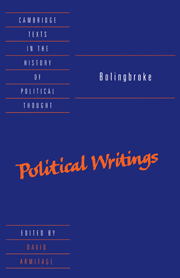
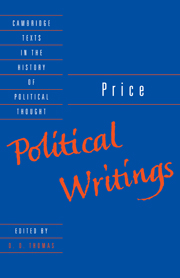
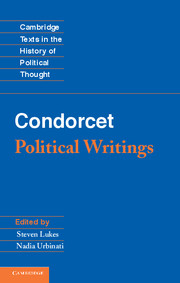
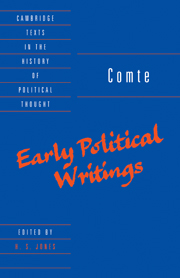
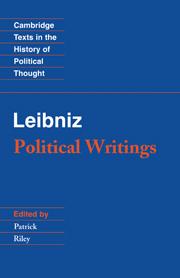
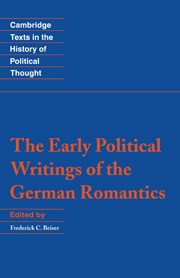
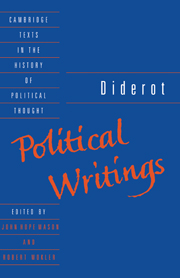
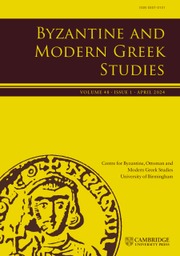
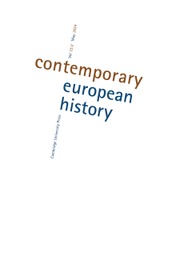
.jpg)
.jpg)